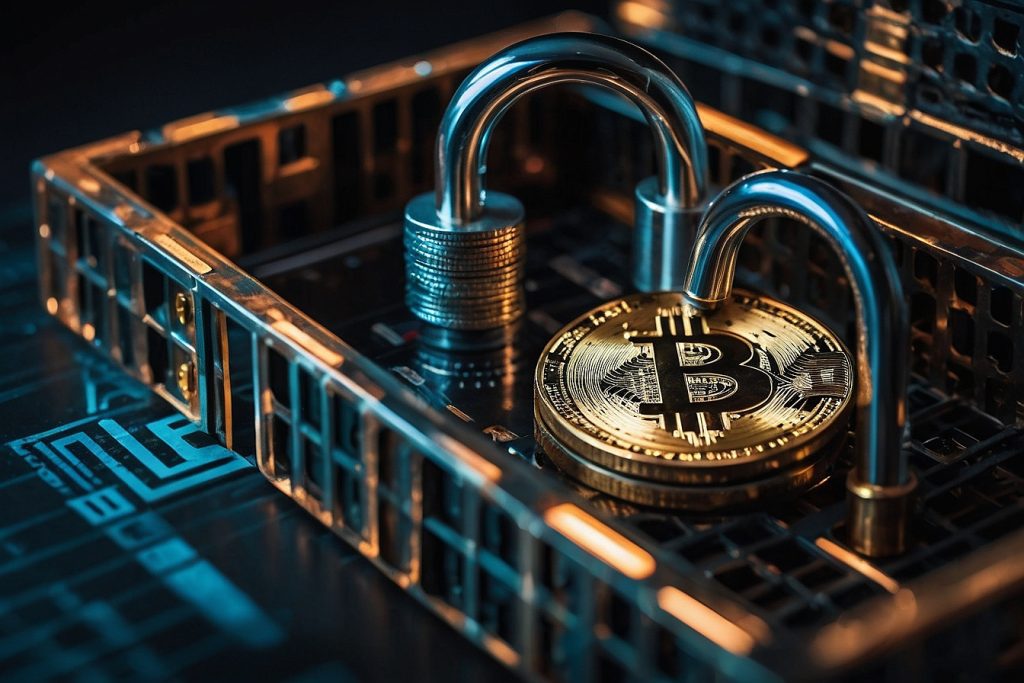
A Beginner’s Guide to Cryptocurrency Security
What up my cryptocurrency peeps! I see you’ve caught the crypto bug like so many others. Way to be ahead of the curve! But before you start throwing your allowance at weird dog coins or “guaranteed 100X gems,” we gotta talk security. Losing your coins would be a major bummer, so let this dog (shiba inu over here) drop some knowledge about keeping your crypto safe as houses. I gotchu!
See, cryptocurrency is special because you really do control it in a way you don’t control any money you keep in a bank. But that means you gotta be careful and take precautions, or else it can be stolen right out from under you! Not so with banks – they got teams of security guards and stuff. But that also means they control your money, not you. Cryptocurrency is that sweet sweet financial freedom…if you know how to secure your holdings. Luckily that stuff is pretty straightforward!
Getting Started with Wallets
First things first, you gotta get yourself a crypto wallet to store your coins and tokens. This is basically like a bank account, but without the bank looking over your shoulder. There’s a bunch of different options out there, but we’re just gonna talk about two that are perfect for my beginners who are just getting their feet wet:
- Software wallets that you download on your computer/phone
- Hardware wallets that are physical devices made just for storing crypto.
Software Wallets: Easy Peasy Convenience
Software (also called “hot”) wallets are free applications you download that store your cryptocurrency. Think Exodus or MetaMask. They make sending and receiving crypto super easy, which is great! You can even use some wallets on your phone to pay for stuff directly with crypto. Sweet!
But here’s the catch – because they connect to the internet 24/7, software wallets are more vulnerable to hackers. Uh oh. If they get into your wallet somehow, it’s bye bye coins! To prevent that nightmare scenario, just be extra careful not to download any shady wallet apps or give out your private login info. Also, only keep a small amount of crypto in software wallets just in case.
Hardware Wallets: Maximum Security
If you’re looking to really lock down your holdings, hardware (aka “cold”) wallets are the way to roll. These are physical USB devices like Ledger and Trezor that store your private keys offline away from hackers. Think of them like an external hard drive…but for cryptocurrency!
Hardware wallets can cost anywhere from $50 to $250 depending on the features, but let me tell ya – they are well worth it if you’ve got more than just pocket change invested!
The only downside to hardware wallets is losing the physical device itself. So make sure to keep it safe and secured just like you would cash or valuables! As long as you don’t literally toss your hardware wallet in the trash, it’s virtually impossible for hackers to drain your precious crypto holdings offline. Talk about peace of mind!
Stay Far Away from Scammy Exchanges
Alright y’all, now that we’ve locked down how to store your crypto safely, I wanna switch gears and talk exchange security. Exchanges are websites where you can easily trade one crypto for another – the most popular being Coinbase and Binance. And while there’s lots of legitimate exchanges out there, some shady ones have also popped up looking to separate careless users from their coins! Not cool.
Here’s just a few red flags to watch out for when signing up for a new exchange:
💸 Ridiculously high signup bonuses or guaranteed returns – Sorry, if it sounds too good to be true then it probably is in crypto! Legit exchanges make money from trading fees, not sketchy bonuses.
💬 Bad online reviews mentioning withdrawn funds never arrived or awful customer service. Do your Googles!
🔒 Lack of proper cybersecurity protections and insurance coverage. Major exchanges invest big in securing infrastructure and providing insurance to users.
As long as you thoroughly vet any exchange before creating an account, you’ll greatly reduce your risks of losing funds. I stick with tried and true platforms like Coinbase which has never done me dirty. Their app is so slick with reasonable fees. Win win!
Well there ya have it folks – a crash course on keeping your cryptocurrency locked down tighter than Fort Knox!
Here’s a quick recap of my top tips:
🔑Use a combination of software AND hardware wallets – software for convenient access to small amounts, and hardware for secure offline storage of the bulk.
📲Never EVER give out private wallet keys or seed phrases…no matter how cute the prince sounds in the emails!
💻Only download wallets from official websites and read lots of reviews first.
🕵️♀️Thoroughly vet any cryptocurrency exchanges before handing over your coins to them!Prioritize security and insurance coverage.
Alright my crypto comrades, go forth and HODL proudly knowing your coins are safe as can be! Let me know if you have any other questions – I could talk security all day. Now if you’ll excuse me, I’ve got some meme coins to go speculate irresponsibly on! Just kidding…mostly 😉